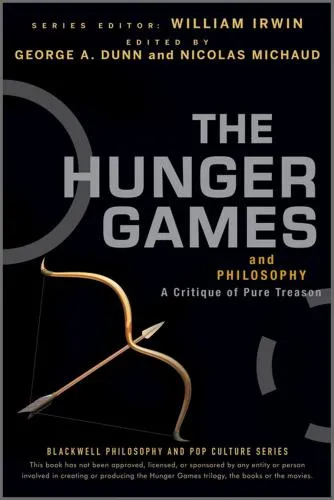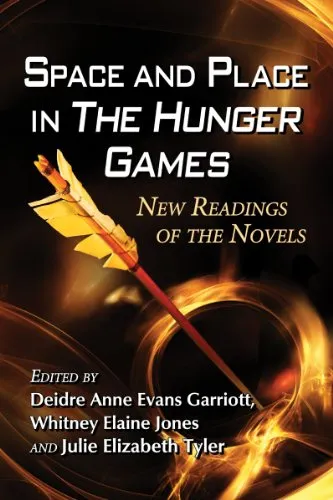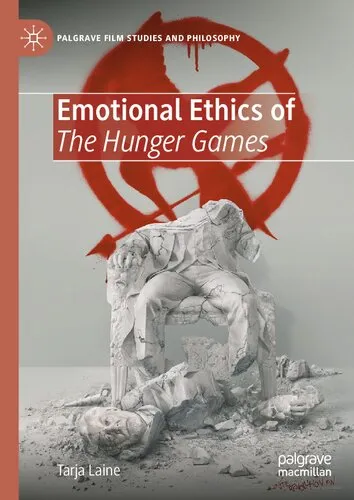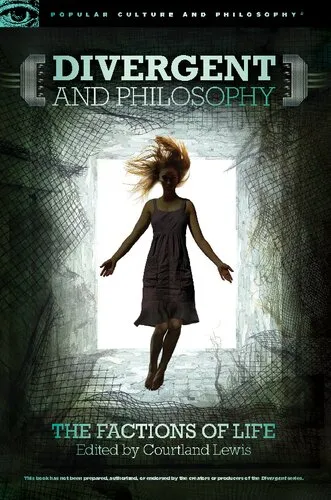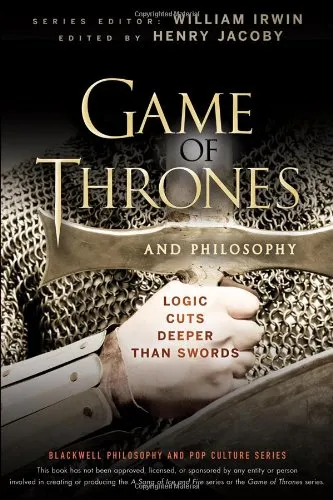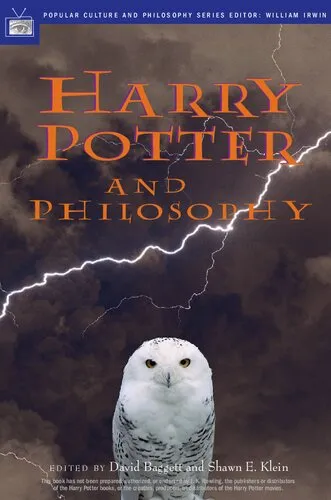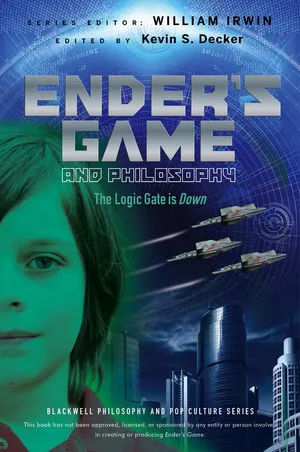The Hunger games and philosophy : a critique of pure treason
4.4
Reviews from our users

You Can Ask your questions from this book's AI after Login
Each download or ask from book AI costs 2 points. To earn more free points, please visit the Points Guide Page and complete some valuable actions.Related Refrences:
Persian Summary
Welcome to an in-depth exploration of 'The Hunger Games and Philosophy: A Critique of Pure Treason,' a compelling analysis of philosophical themes embedded within Suzanne Collins' dystopian universe. This book offers readers an opportunity to delve into the ethical, political, and existential questions raised by the brutal world of Panem, where the stakes are survival and rebellion against tyranny.
Detailed Summary of the Book
'The Hunger Games and Philosophy: A Critique of Pure Treason' dissects the philosophical layers interwoven in The Hunger Games trilogy. This anthology, edited by George A. Dunn and Nicolas Michaud, comprises various essays by different scholars who apply philosophical frameworks to explore key themes from the series. Each chapter investigates how the story challenges its audience with profound questions about morality, society, and the human condition.
From Nietzchean concepts of power and identity to Aristotelian ethics concerning courage and justice, the book questions not only the world of Panem but also our real-world systems and values. It explores how Katniss Everdeen's journey symbolizes a fight against systemic oppression and how her choices reflect deeper existential dilemmas. Philosophical dialogues related to reason versus emotion, authoritarian governance, and human liberty feature prominently throughout the discourse.
Key Takeaways
- The duality of human nature is expressed through survival ethics practiced in extreme conditions.
- The power dynamics within Panem illuminate issues of control and rebellion relevant to our current societal structures.
- Philosophical inquiry into The Hunger Games broadens understanding of contemporary moral and political dilemmas.
- The narrative is a critique of passive acceptance, encouraging active resistance and thought.
Famous Quotes from the Book
The questions that The Hunger Games poses to its readers is whether they would have the courage to rise against injustice, even when the price of resistance is high.
Human beings, when pushed to their limits, reveal their truest selves—not as solitary entities but products of their social, ethical, and political environments.
Why This Book Matters
The Hunger Games and Philosophy: A Critique of Pure Treason' is pivotal in understanding how literature can serve as a conduit for philosophical debate. By engaging with the text, readers are prompted to reflect on the nature of freedom, sacrifice, and the collective human experience. This work does not merely entertain; it acts as a mirror reflecting our societal imperfections and urging critical discourse and action.
In an age where authoritarianism and moral ambiguity dominate global conversations, this book stimulates intellectual curiosity and ethical questioning. It is essential for both fans of The Hunger Games trilogy and those interested in philosophy to explore the complex interplay between fiction and reality, power and rebellion, and how they dictate the way societies function.
Free Direct Download
You Can Download this book after Login
Accessing books through legal platforms and public libraries not only supports the rights of authors and publishers but also contributes to the sustainability of reading culture. Before downloading, please take a moment to consider these options.
Find this book on other platforms:
WorldCat helps you find books in libraries worldwide.
See ratings, reviews, and discussions on Goodreads.
Find and buy rare or used books on AbeBooks.
1693
بازدید4.4
امتیاز0
نظر98%
رضایتReviews:
4.4
Based on 0 users review
Questions & Answers
Ask questions about this book or help others by answering
No questions yet. Be the first to ask!
